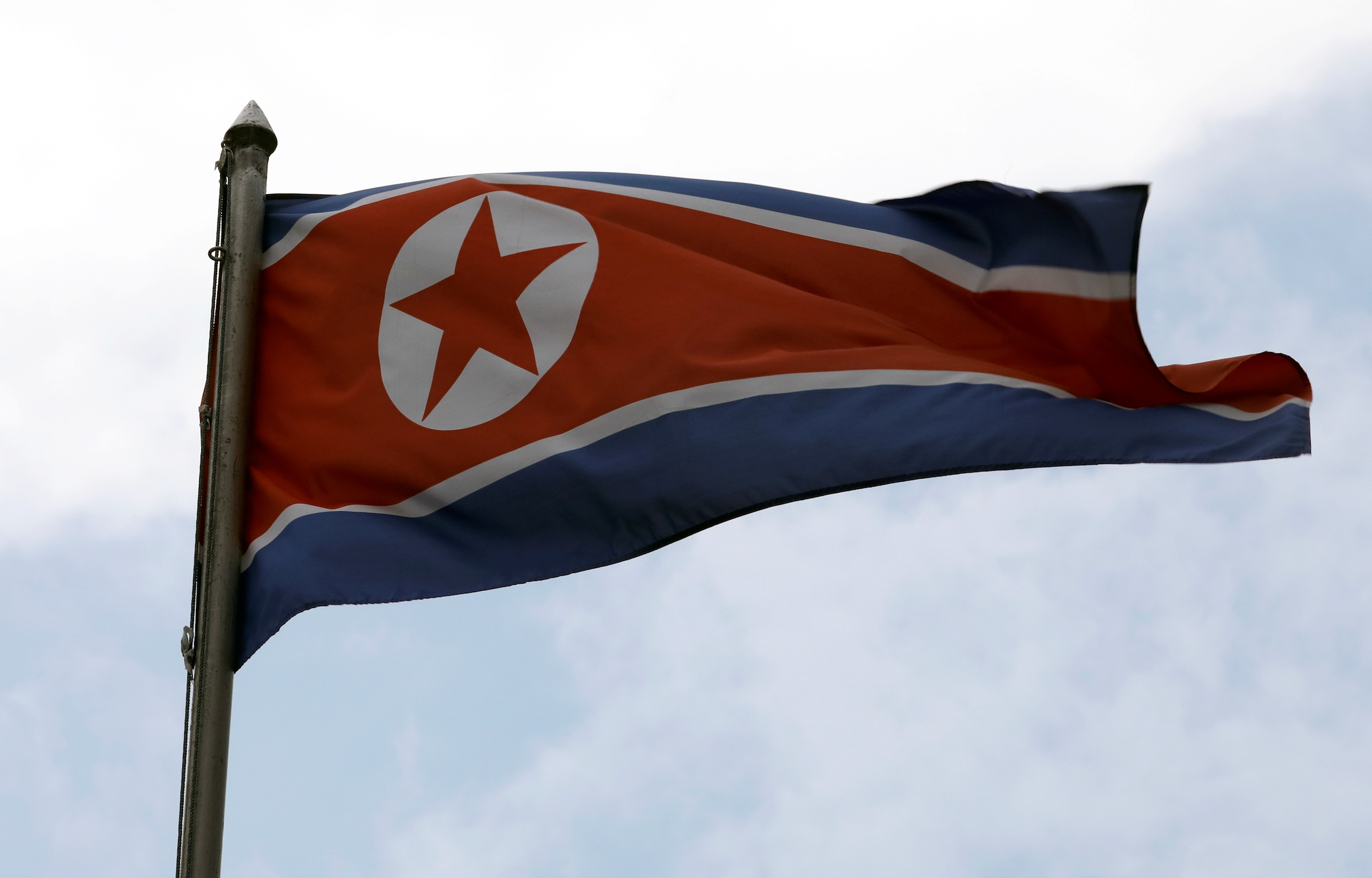
NKorea launches new type of ballistic missile, South says
SEOUL/TOKYO (Reuters) -North Korea fired a new model of long-range ballistic missile on Thursday, South Korea said, triggering a scare in northern Japan where residents were told to take cover, though there turned out to be no danger.
A South Korean military official said the missile appeared to have been a new weapon displayed at recent North Korean military parades, and possibly used solid fuel.
North Korea has been working to build more solid-fuel missiles, which are easier to store and transport, and can be launched with almost no warning or preparation time.
The missile flew about 1,000 km (620 miles), South Korea's military said, calling it a "grave provocation". The official said the missile's maximum altitude was lower than 6,000 km, the apogee of some of last year's record-breaking tests.
"So far we assess that they fired a new type of ballistic missile with an intermediate or intercontinental range," the official said. "We're still analysing details like the trajectory, altitude and range, with the possibility that it carried a solid-fuel propellant."
The South Korean military said it was on high alert and coordinating closely with its main ally, the United States, which "strongly condemned" what the White House said in a statement was a long-range ballisticmissile test.
Following the missile launch, the Japanese and U.S. air forces conducted drills over the Sea of Japan "as the security environment surrounding Japan is becoming more and more severe," the Japanese defence ministry said.
While North Korea has tested short-range solid-fuel missiles, it has not tested a long-range missile of that type, said Bruce Bennett, a senior defence analyst at the U.S.-based RAND Corporation.
Kim Dong-yup, a former South Korean navy officer who teaches at Kyungnam University's Far East Institute, said the new system might have been an intercontinental ballistic missile that was unveiled at a February military parade, and powered by a solid-fuel engine tested in December.
The missile was fired at 7:23 a.m. (2223 GMT on Wednesday) from near Pyongyang, the South's military said. Japan's coast guard said it had landed by 8:19 a.m.
It could have been launched from an international airport close to North Korea's capital, a major site for test-firing large missiles since 2017.
BRIEF PANIC
The nuclear envoys of allies South Korea, the U.S. and Japan spoke and condemned the launch, saying North Korea had constantly threatened regional peace with "unprecedented levels of provocations and menacing words", South Korea's foreign ministry said.
Japan called a National Security Council meeting in response to the launch. Its defence minister, Yasukazu Hamada, said the missile appeared to have been fired eastward at a high angle and it did not fall in Japanese territory.
Japan's coast guard said the projectile had fallen in the sea to the east of North Korea. Hamada said he could not confirm whether the missile had flown over Japan's exclusive economic zone.
Authorities retracted the alert for Hokkaido island in northern Japan when they determined that the missile would not fall nearby.
Schools in Hokkaido delayed their opening times and some train services were suspended, Japanese broadcaster NHK reported.
A student there said the alert caused momentary alarm at a train station.
"For a second in the train there was panic, but a station worker said to calm down, and people did," a student told NHK.
The launch came days after North Korean leader Kim Jong Un called for strengthening war deterrence in a "more practical and offensive" manner to counter what North Korea called moves of aggression by the United States.
While condemning the latest in a string of North Korean missile tests, the United States renewed its offer to open talks.
"The door has not closed on diplomacy, but Pyongyang must immediately cease its destabilising actions and instead choose diplomatic engagement," U.S. National Security Council spokesperson Adrienne Watson said in a statement.
North Korea has criticised recent joint military exercises between U.S. and South Korean forces as escalating tensions, stepping up its weapons tests in recent months.
(Reporting by Hyunsu Yim, Ju-min Park, Soo-hyang Choi and Hyonhee Shin in Seoul, Chang-Ran Kim in Tokyo; Writing by Gerry Doyle; Editing by Neil Fullick, William Mallard and Mark Potter)









